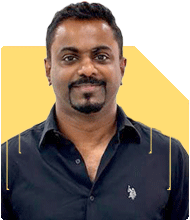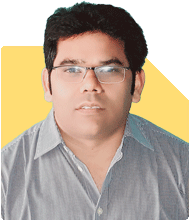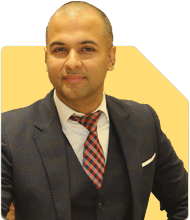Mayank Rautela | Answer |Ask -Follow
HR Expert - Answered on Feb 18, 2024
A management graduate from the Symbiosis Institute of Management Studies with a master's degree in labour laws from Pune University, Rautela has over 20 years of experience in general management, strategic human resources, global mergers and integrations and change management.... more

Sir , i have lost my job and do not have any savings left to run the family . i am 60 years old , what kind of job can i search for. kindly advice
You may like to see similar questions and answers below
Rajesh Nair | Answer |Ask -Follow
Hiring, Leadership Expert - Answered on Aug 02, 2024
Onkar Singh | Answer |Ask -Follow
Career Management, Skills Development Expert - Answered on Sep 02, 2024
Ramalingam Kalirajan |10906 Answers |Ask -Follow
Mutual Funds, Financial Planning Expert - Answered on Dec 09, 2024
Prof Suvasish Mukhopadhyay | Answer |Ask -Follow
Career Counsellor - Answered on Jan 10, 2025
Harsh Bharwani | Answer |Ask -Follow
Entrepreneurship Expert - Answered on Apr 08, 2025
Ramalingam Kalirajan |10906 Answers |Ask -Follow
Mutual Funds, Financial Planning Expert - Answered on Dec 19, 2025
Nayagam P P |10859 Answers |Ask -Follow
Career Counsellor - Answered on Dec 19, 2025
Ramalingam Kalirajan |10906 Answers |Ask -Follow
Mutual Funds, Financial Planning Expert - Answered on Dec 19, 2025
Ramalingam Kalirajan |10906 Answers |Ask -Follow
Mutual Funds, Financial Planning Expert - Answered on Dec 19, 2025
Ramalingam Kalirajan |10906 Answers |Ask -Follow
Mutual Funds, Financial Planning Expert - Answered on Dec 19, 2025
Radheshyam Zanwar |6751 Answers |Ask -Follow
MHT-CET, IIT-JEE, NEET-UG Expert - Answered on Dec 19, 2025
Radheshyam Zanwar |6751 Answers |Ask -Follow
MHT-CET, IIT-JEE, NEET-UG Expert - Answered on Dec 19, 2025
Samraat Jadhav |2514 Answers |Ask -Follow
Stock Market Expert - Answered on Dec 18, 2025
Reetika Sharma |432 Answers |Ask -Follow
Financial Planner, MF and Insurance Expert - Answered on Dec 18, 2025
Reetika Sharma |432 Answers |Ask -Follow
Financial Planner, MF and Insurance Expert - Answered on Dec 18, 2025




























